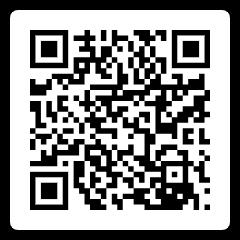

ANIMAL ISSUES DIGEST
WELCOME
I write this note as the first signs of spring are beginning to make themselves known here in Chicago. Soon flowers will begin to bloom, birds will hatch, and babies will be born to the many wildlife species that live alongside us.
At Born Free USA, we welcome this time of abundance and renewal as time for us to renew our commitment to protecting wildlife and celebrate the many victories we have already secured in this vital mission.
In this magazine, you will read about some of the ways we are protecting animals large and small, here in the U.S. and overseas – wherever they need our help. You will read about Born Free USA’s latest report on classroom pets (cover story, page 6); a legislative path to ban mink farms vin the U.S. (page 3); how we
are nurturing the next generation of wildlife champions (page 4); and our work with officials in Nigeria to raise awareness about wildlife trafficking (page 5). You will also explore our primate sanctuary in South Texas, where monkeys like Wally start new lives (page 8) and where we work to ensure all residents enjoy the best possible living spaces (page 8) and opportunities to form friendships (page 9).
You are a vital part of the Born Free community; a community dedicated to ending the exploitation of wildlife and ushering in a more peaceful coexistence between humans and animals. In these pages you will also see the many ways you can and are helping to save animals.
Whether you sign petitions or call representatives, maximize your

impact with a gift of stock, contribute through a Donor Advised Fund (DAF), symbolically adopt a monkey or an entire species, include Born Free in your legacy plans, or give directly we are profoundly grateful for your partnership (page 10).
Warmly,
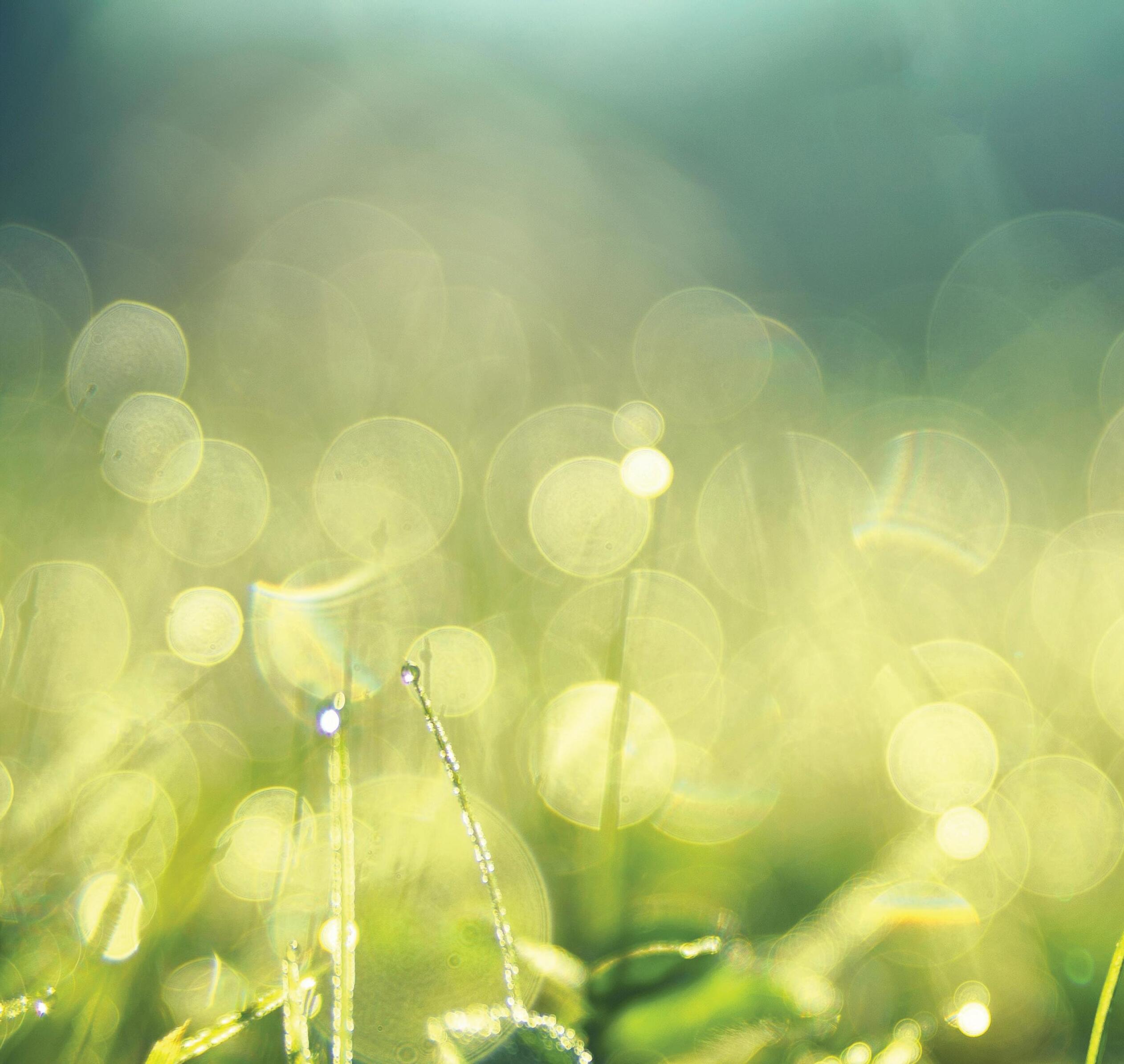
Animal Issues Digest is published twice per year by Born Free USA to inform and educate our readers about major wildlife issues. Copyright © 2025 by Born Free USA. Complimentary copy available on request. For reprints and all editorial correspondence, please write to Animal Issues Digest editor at info@bornfreeusa.org. To get the latest information on wildlife issues and what you can do to help imperiled wild animals, become a member of the Wildlife Alert Team at bornfreeusa.org/newsletters.
We work to ensure that all wild animals, whether living in captivity or in the wild, are treated with compassion and respect and are able to live their lives according to their needs. We seek to have a positive impact on animals in the wild and protect their ecosystems in perpetuity, for their own intrinsic value and for the critical roles they play within the natural world.
Art, Production & Editorial:
Arlene Harting-Josue, Graphic Designer Karen Lauria, Communications Director
Writers & Contributors: Shelley Brend; Suzanne Emerson; Angela Grimes; Gita Matlock; Devan Schowe; Alice Stroud; Dr. Liz Tyson.
8737 Colesville Road, Suite 305, Silver Spring, MD 20910 (301) 448-1407 | info@bornfreeusa.org | bornfreeusa.org
Angela Grimes Chief Executive Officer
Born Free USA
PROTECTING PUBLIC HEALTH BY HALTING MINK FARMING
The Mink VIRUS Act was reintroduced in Congress in March of this year. Championed by Representative Adriano Espaillat, the bill would ban mink farming in the United States as well as provide a buy-out program for fur farmers to transition out of the fur industry. While Born Free USA’s fundamental concern regarding fur farming stems from the horrific treatment of mink farmed for their fur, this bill focuses on another important aspect – that of zoonotic disease spread.
Minks’ upper respiratory systems bear similarities to our own, making them ideal “mixing vessels” for diseases to spread from them to humans, and vice versa. We saw this play out during the COVID-19 pandemic, when millions of minks were prematurely slaughtered as outbreaks of COVID-19 were found on fur farms around the world. Now, with rising cases of avian influenza (bird flu) being found on mink farms, it is vital that we end fur farming in the interests of both animal welfare and public health.
Demand for fur has plummeted in the last decade, with sales down by 85% since 2015. As such, the buy-out program for those who currently rely on fur farming as their livelihood is a unique opportunity to get out of an already dying industry before its complete collapse. Overall, the Mink VIRUS Act is a win for animals and humans alike.
Born Free is currently encouraging supporters to contact their House Representative to ask them to co-sponsor the bill as it moves through the House.
You can help by visiting bornfreeusa.org/mink-virus and telling your representative that they must address the dangers of fur farming immediately.
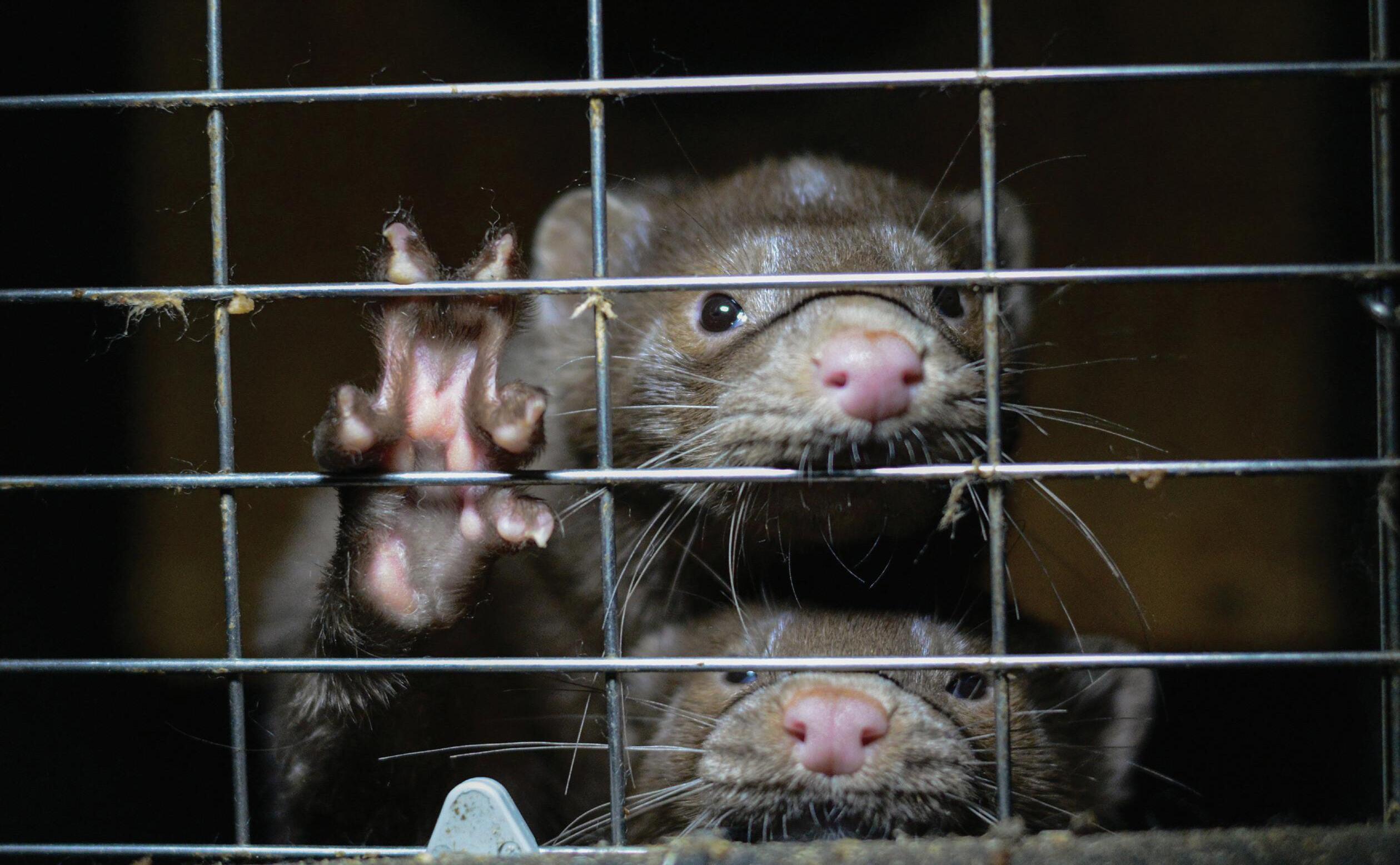
WHILE BORN FREE USA’S FUNDAMENTAL CONCERN REGARDING FUR FARMING STEMS FROM THE HORRIFIC TREATMENT OF MINK FARMED FOR THEIR FUR, THIS BILL FOCUSES ON ANOTHER IMPORTANT ASPECT –THAT OF ZOONOTIC DISEASE SPREAD .
Photo: We Animals Media
BORN FREE USA’S YOUTH COUNCIL: NURTURING YOUNG LEADERS
In November of last year, we were excited to hold the inaugural meeting of our Youth Council. With four founding members – Anjali, Hector, Mason, and Kate –and newest member, Dorothy, joining in March 2025, the Council is now in full swing. Council activities include skills-building workshops and youth-led campaigns to create positive change for animals and people. At the time of writing, our council is working on its first campaign, which will launch later in the year.
Another element of our commitment to young people is our Youth Grants Program, which will begin in the fall. Providing funding to young people who are passionate about change in the delivery of self-led projects will help to support the newest generation of changemakers.
Our stellar group of young people have huge potential to contribute to Born Free USA’s mission to “Keep Wildlife in the Wild” and we look forward to this new chapter of meaningful youth engagement and action.
NEW REPORT ON PRIMATE CAPTIVITY IN ZOOS COMING SOON
Over the last three years, Born Free USA has shone a spotlight on the plight of animals held captive in zoos around the world. Working in partnership with our colleagues in the UK, we have produced detailed research on the experiences of animals commonly imprisoned in zoos in North America and Europe. Species examined so far are giraffes, elephants, polar bears, big cats, and aquatic animals.
The next installment of this series will focus on primates, in particular, great apes. Due for release in the summer, initial results paint a disturbing picture of premature death, health and welfare issues, and an almost complete absence of impact on conservation. We hope that our continued efforts in this area will serve to inform members of the public and lawmakers about the reality of zoos and grow support for our vision of all wild animals living free from human exploitation.

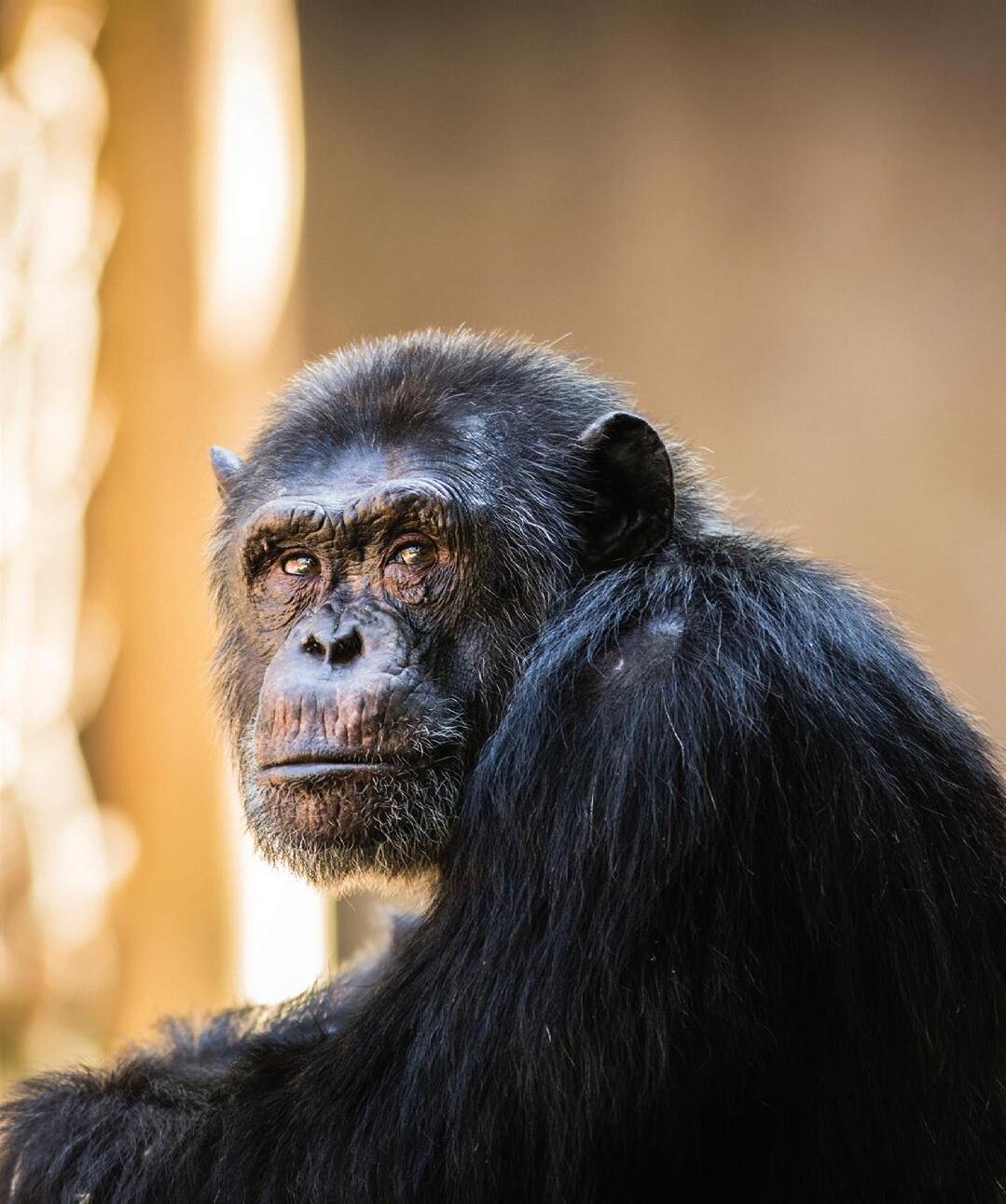
RAISING AWARENESS ABOUT WILDLIFE CRIME IN NIGERIA
Wildlife crime, conducted by organized criminal groups, poses an enormous threat to wildlife populations globally. A recent report by the United Nations Office on Drugs and Crime (UNODC) indicated that between 2015 and 2021, trafficking of species included 162 countries and territories, with around 4,000 plant and animal species affected. In addition to the environmental destruction, wildlife crime also threatens indigenous communities and their access to medicine, income, and food derived from nature.
In West Africa, Nigeria is known as a key hub for illicit wildlife trade. Take pangolins as an example. A review of Nigeria’s involvement in global pangolin trafficking between 2010 and 2021, identified seizures totaling 420,000 lb. of pangolin products (99% of which were scales). It is believed that at least 799,343 pangolins were illegally captured and killed to fuel this trade.
The National Strategy to Combat Wildlife and Forest Crime in Nigeria identifies a lack of awareness as a key driver of biodiversity loss. Born Free USA has therefore been assisting the Nigerian authorities with addressing this problem by supporting outreach activities in key areas known for trafficking.
The outreach team has so far visited several different schools and communities across Abeokuta, in Ogun State. They provided the communities with posters in their local languages and gave presentations to key community leaders, who were highly receptive and appreciative of the work. The team also led a town hall meeting and visited bush meat traders at Itoku Market to promote sustainable protection of wildlife.
Born Free USA warmly congratulates the outreach team who did a fantastic job of raising awareness as to the value of nature and the threat of wildlife crime. The team will soon be undertaking another outreach mission –keep an eye on Born Free USA’s online blogs for more updates!
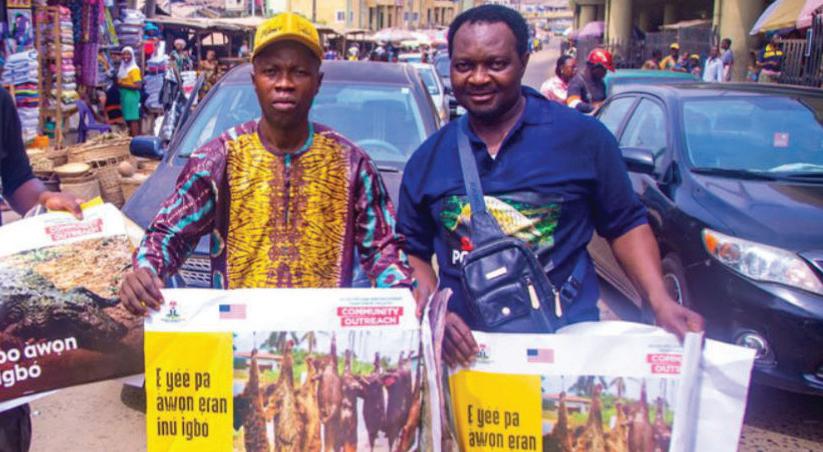

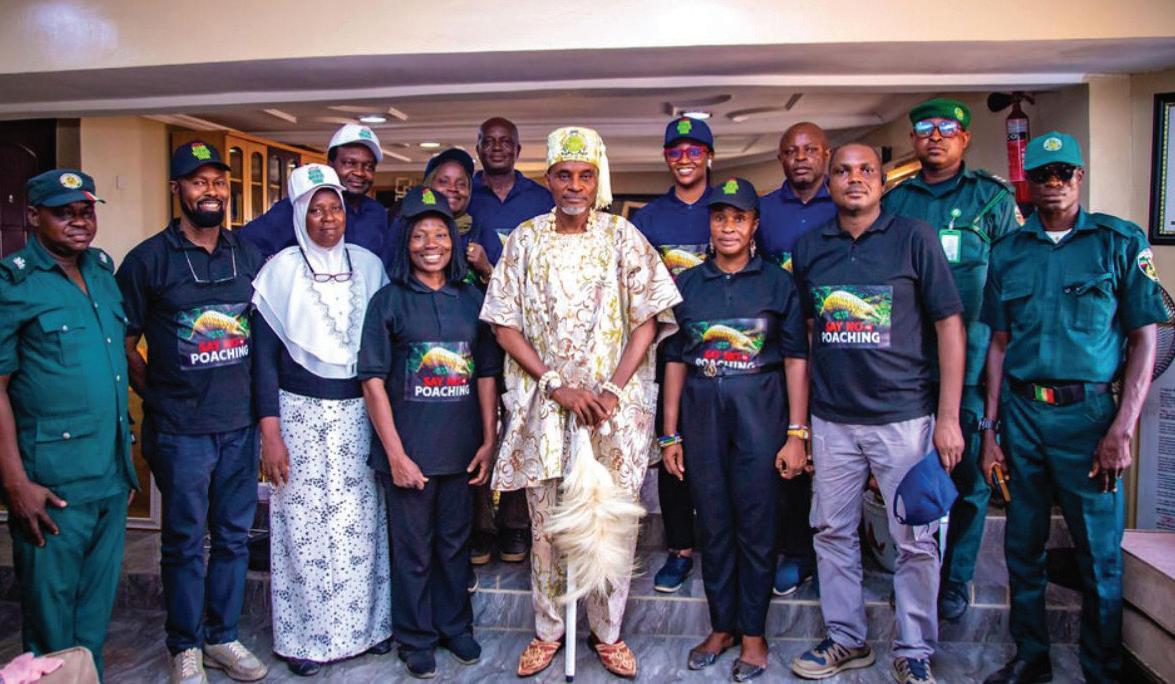
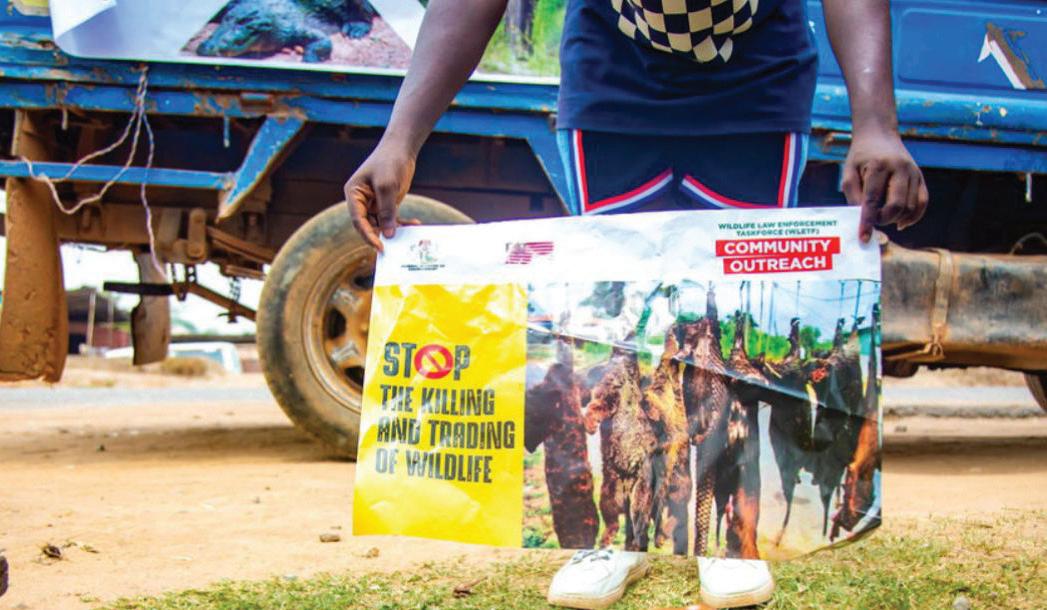
SAY NO TO TEACHERS’ PETS: WILD ANIMALS HAVE NO PLACE IN THE CLASSROOM
Born Free has a long history rooted in refuting the false claims made by the zoo industry to justify their existence, particularly including their supposed “contributions to animal conservation and educating younger generations.
As we have previously addressed the erroneous claim that zoos benefit the conservation of wild animals in several of our recent reports by highlighting some species kept and bred in zoos that continue to face widespread population decline like big cats, polar bears, and elephants, our newest report scrutinizes the relationship between education and wildlife, and how experiences at schools involving wild animals can
be harmful to both the animals and humans involved. Teachers’ Pets: The Exploitation of Wild Animals in the Classroom, evaluates the keeping of exotic pets in classrooms and mobile zoo visits to schools. Our report summarizes the landscape of both practices in the U.S. and the corresponding lack of regulation; outlines the public health and safety issues; highlights the animal conservation and welfare concerns; and dismantles the alleged educational “benefits.” We argue that banning classroom pets in school districts and prohibiting mobile zoos from school property remain the most effective and logical solutions to protect future generations of students and help keep wild animals in
the only environment in which they truly belong: the wild.
Addressing this topic has become more urgent since 2020, when COVID-19 became a worldwide pandemic that impacted the lives of millions. Since 1919, there have been at least 19 major global pandemics associated with wildlife, killing hundreds of millions of people and countless animals globally. Because wild animals remain the main vectors of many diseases with the potential to become the next major pandemic, minimizing direct contact between humans and wild animals should be prioritized; especially with the most vulnerable populations like children.
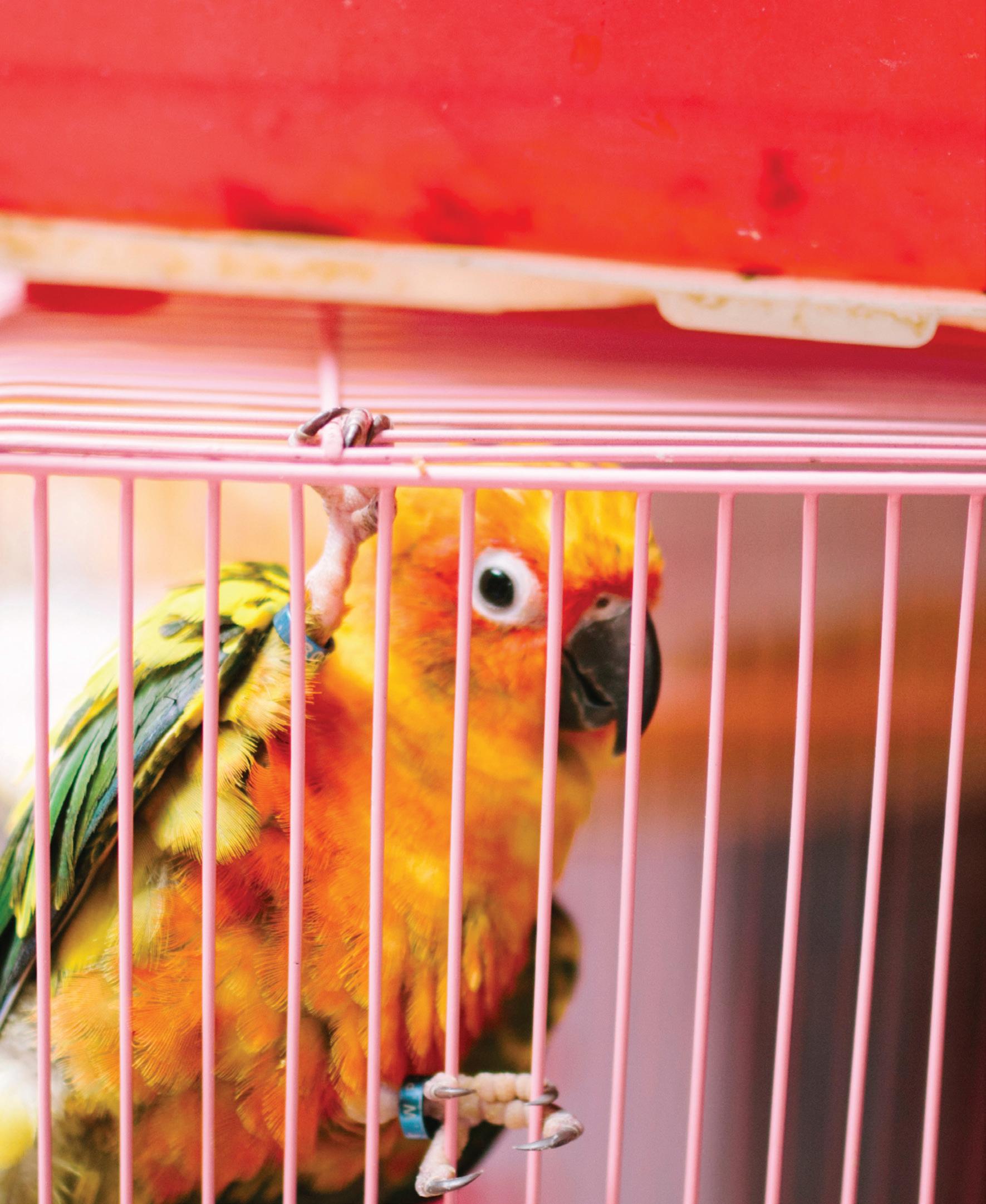
In addition to telling the stories of several classroom pets who died tragic preventable deaths due to miseducation or neglect by handlers in schools (including students, parents, and teachers), we use statistics to illustrate the unnecessary and potentially harmful nature of allowing wild animals in schools. For example, almost 60% of all teachers admitted that they did not have a formal lesson plan involving classroom pets, nor did they integrate the animals into their teaching in a purposeful way. Further, studies have confirmed that there is no significant difference in academic
achievements between students taught in-person with live animals versus a video lesson featuring animals on-screen. Studies have also shown that the false and misleading content appearing in materials at mobile zoos frequently cause negative learning to occur in children (the learning of false information), which can result in the dangerous perception that wild animals are safe to interact with, are not threatened with extinction in their natural habitats, and that they can achieve acceptable welfare in such restrictive, unnatural captive conditions.
Estimates suggest that 15% of people have animal allergies, with children most affected. Children with allergies, sensitivities, and medical conditions are at increased risk when interacting with wild animals. This
may include allergies to animal bedding, their food, or animal dander, fur, and/or saliva; sensitivities to the noise level or movements produced by an animal; and issues associated with asthma or being immunocompromised that may detract from a student’s classroom experience when a wild animal is present and, in the worst case, may threaten their long-term health or safety.
More effective, ethical, and compassionate teaching alternatives to both practices can include companion animal show-and-tell or story time, symbolically “adopting” an animal from a GFAS-accredited sanctuary, educational theater activities, going on a field trip to a local wildlife rehabilitation
or rescue center or local park, viewing wildlife documentaries, visiting a holographic zoo, live-streaming animals at accredited sanctuaries, or planting a pollinator garden with native plants to attract local wildlife. These alternative methods allow students to learn about the wild pet trade and wildlife conservation without negatively and inadvertently contributing to these issues.
Read and share our latest report at bornfreeusa.org/classroompets.
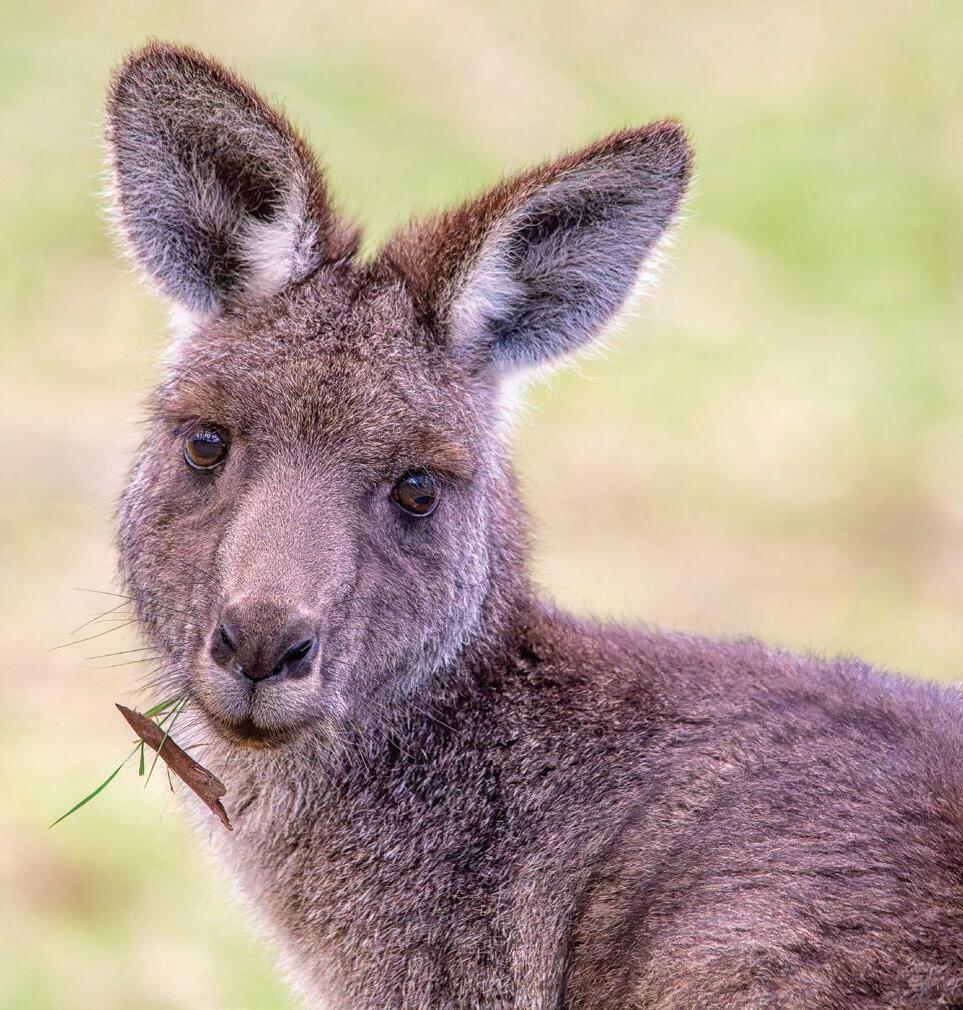
bornfreeusa.org/donate
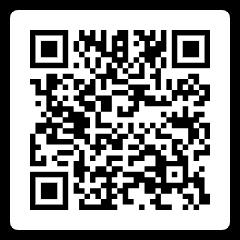
Photo: Andrew Heysom
A NEW LIFE FOR WALLY!
In February, we received an urgent call to rescue a young rhesus macaque. Wally had been kept as a pet for five years and recently became aggressive and seriously injured one of his caretakers. We had just hours to decide whether we could offer Wally a home for life as his owners, who were desperate for a solution, had found a private buyer for him in Ohio. Thanks to some swift planning by our team, we were able to commit to giving Wally a new home, and he arrived the following week.
Having narrowly escaped many more years of isolation in the pet trade, Wally can now live in our spacious enclosures in the company of other monkeys. His mandatory quarantine period was completed in March, and at the time of writing, we are beginning to introduce him to other monkeys. Like most monkeys kept as pets, it is likely that the last time Wally saw another monkey was when he was taken from his mother as a baby. As such, the process of introductions can take time as new
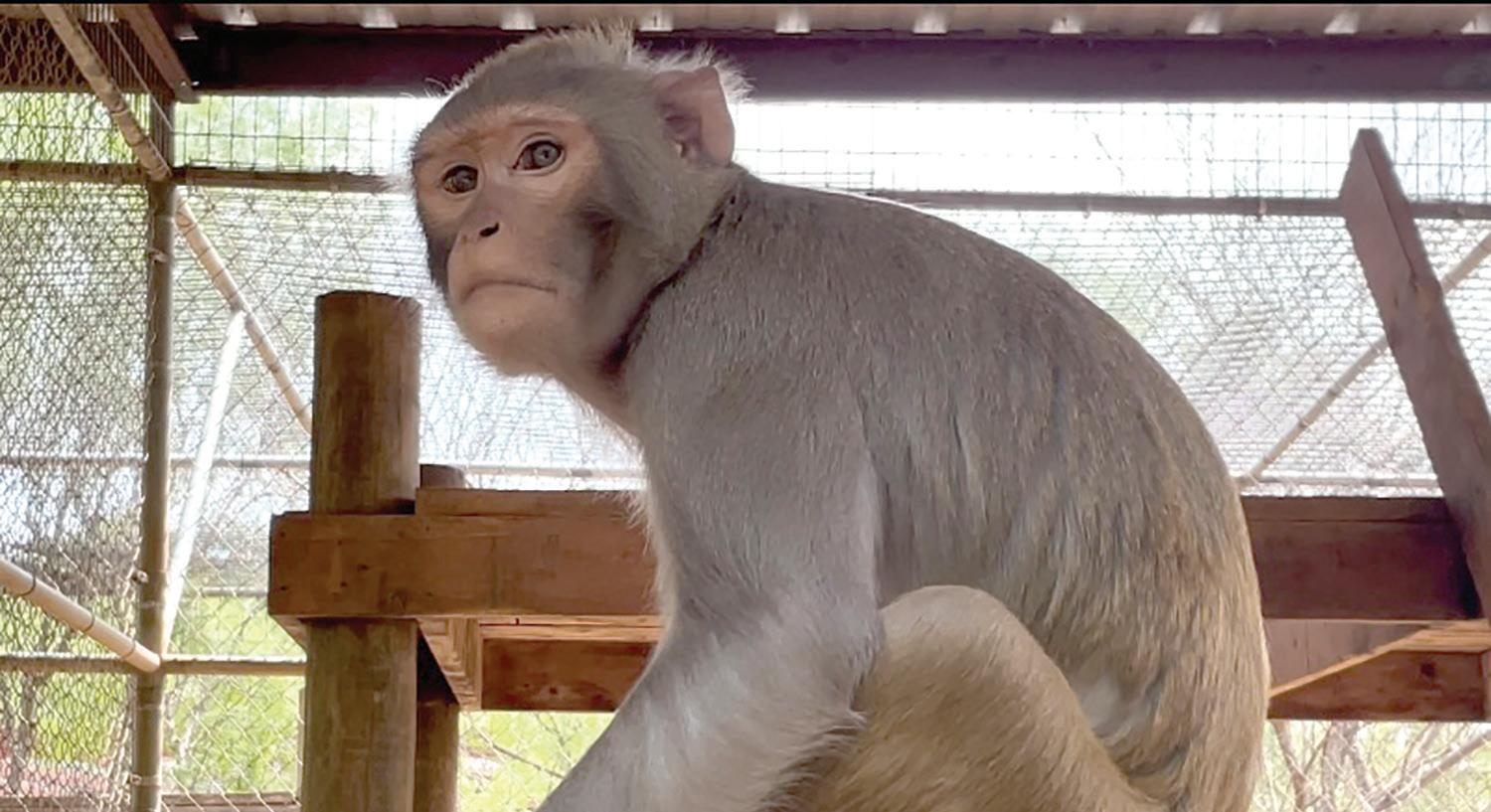
arrivals find their feet and feel safe. We are confident that this young macaque has a bright future with us, and we look forward to updating you on his journey.
We are trying to raise $3,000 to cover Wally’s first year of care! To welcome Wally with your gift scan the QR code or visit bornfreeusa.org/wally. Or, to make a donation by mail, return the attached envelope and write “Wally” on the memo line.
A NEW AND IMPROVED HOME FOR ARCHIE, LOUIE, RICKY, AND KIKI!
One of the ongoing endeavors in our work at the primate sanctuary is to help monkeys live in environments with as much freedom of movement and social opportunities as possible. While one of our vervet groups lives in a large open-top enclosure, the other group was living in an enclosure that, while adequate, was too small for our high standards. As such, we set to work renovating a
more suitable space for them, which they moved into in March.
With newfound freedom, Archie, Louie, Ricky, and Kiki immediately showed us their delight by racing around and exploring every part of their new home. With trees to climb, grass to forage in, neighbors to chat to, and climbing structures to play on, we are so happy to see the
group in their new enclosure. Not only this, but they are now nextdoor neighbors with our other vervet group, made up of Charles, Billie, Teddy, Mikey, Willis, and Gizmo. We hope that, as time goes on, we will be able to integrate the two groups into a larger vervet troop who can enjoy each other’s company in the way that monkeys should.
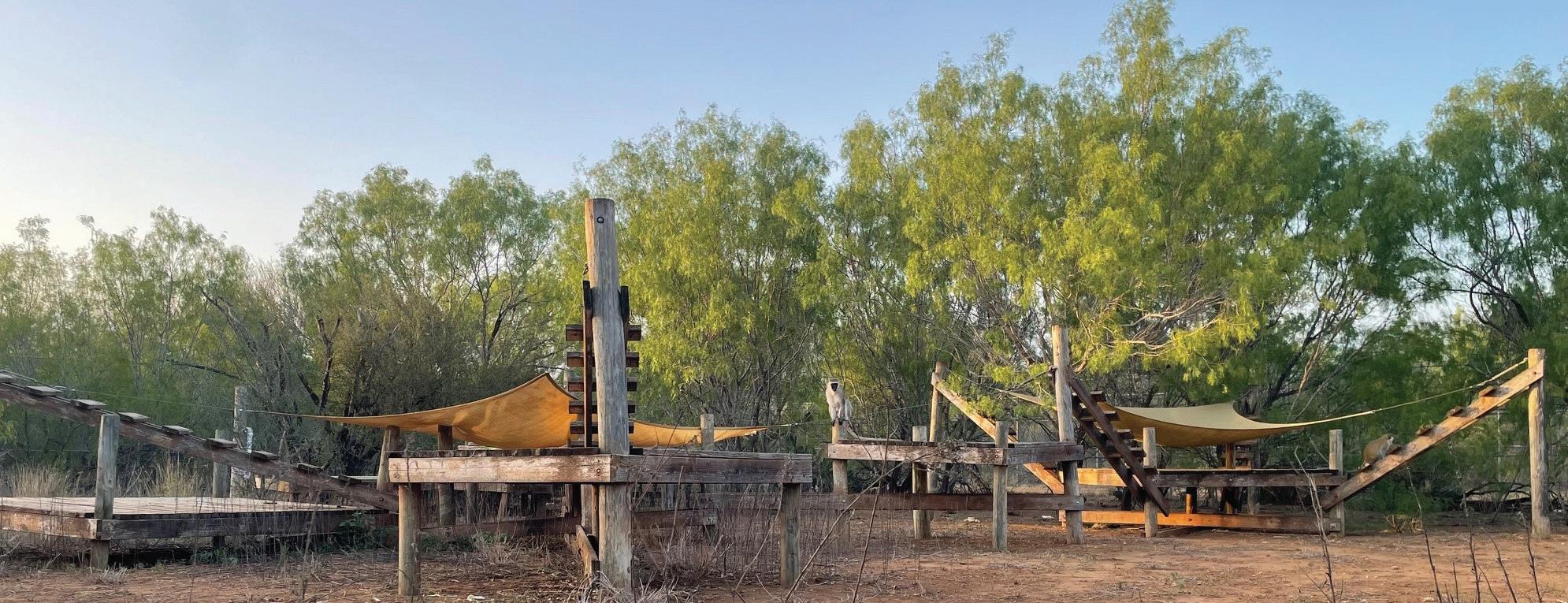
FORGING FRIENDSHIPS AT THE SANCTUARY
Our golden rule at our sanctuary is that no monkey lives alone. All primates (including humans!) need company to thrive. For almost all the monkeys rescued by the sanctuary, having companions is a new experience as they have usually been kept in isolation, whether in a home, a laboratory, or other exploitative situation.
A large part of our team’s work with new arrivals is to help them to make friends and give them the social opportunities that they never had before. We also work to ensure that existing residents have their needs met as relationships change over time. Just like with humans,
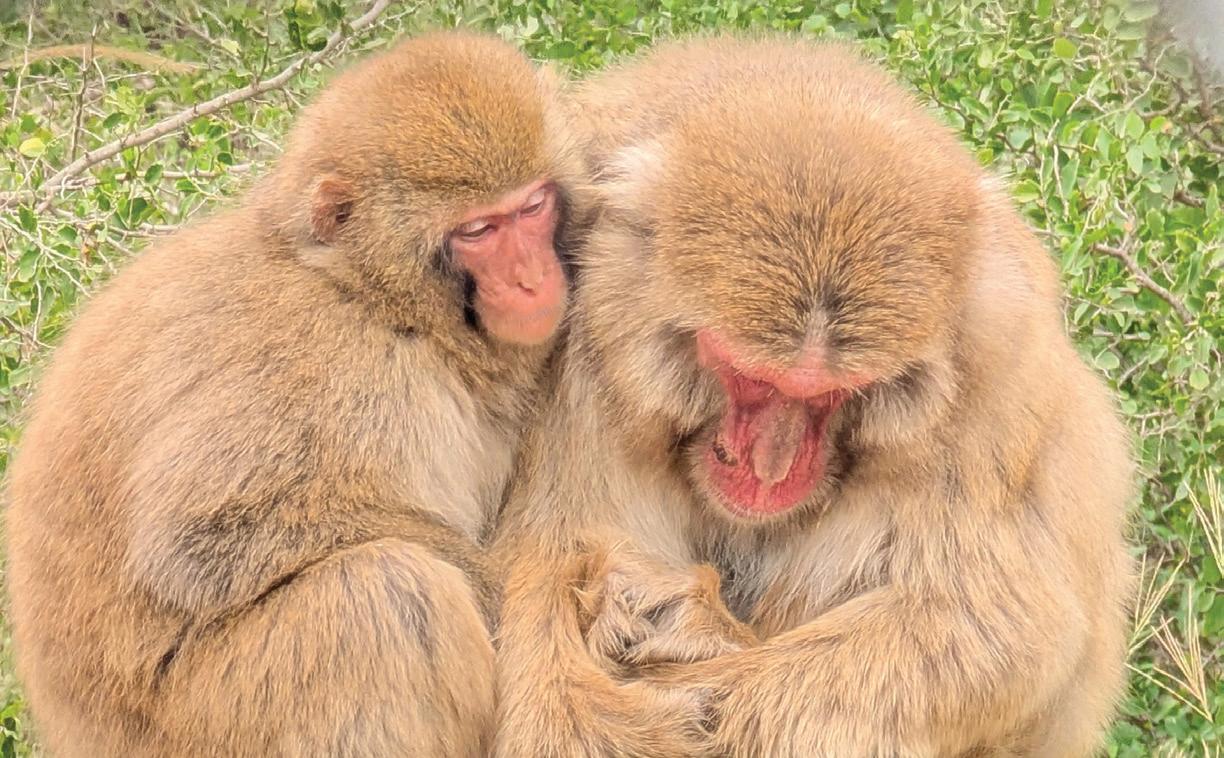

monkey friendships can turn sour and happy partnerships can become fractious, meaning that we need to find new social options for those who no longer see eye to eye.
Read more about new friendships at the sanctuary at bornfreeusa.org/forgingfriendships.
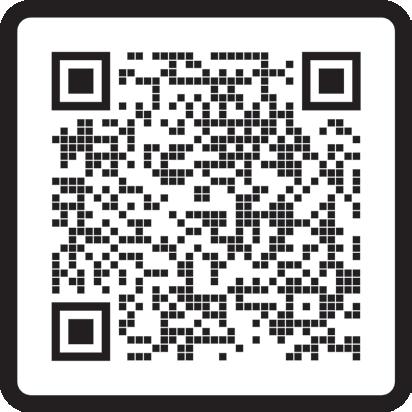
Photo: Jupiter and Kimmy keep each other warm.
Photo: Cooper grooming Marge.
HOW PEOPLE LIKE YOU ARE CHANGING THE WORLD
FOR WILDLIFE
You care about making a difference for animals. But how will you make that difference? It’s a big question, and the right answer depends on your own interests and passions. Here are three groups of Born Free USA supporters who are already hard at work changing the world for wildlife. See which group’s methods speak to you.
Members
These are supporters who truly care about Born Free’s mission and want to show it. For $25 or more you will belong to a group of proud animal advocates. Gifts from this group fund activities during the membership year, making a difference in the now.
Monthly Donors
These are supporters who want their giving to be streamlined and reliable. Simply sign up one time and know that you are making a difference for animals every month! Gifts from this group let us act consistently for animals, making a long-term difference.
Adopters
These supporters like to connect directly with an animal. For $60 a year or $7 a month these donors make a difference in the life of a monkey or an animal of choice in the wild. Gifts from this group address threats to wildlife species or provide daily care for monkeys at our primate sanctuary.

No matter what type of giving is right for you, you can rest assured that your gift to Born Free USA creates a better world for wildlife and makes a difference for the animals we all love.
You can make a gift through the attached envelope or learn more about these or other options at bornfreeusa.org/more-ways-to-give
P.S. Did you know that many of our donors give using their Donor Advised Fund, Workplace Giving Program, or stocks? Many of these methods have great tax advantages too! Visit bornfreeusa.org/ more-ways-to-give to learn how!
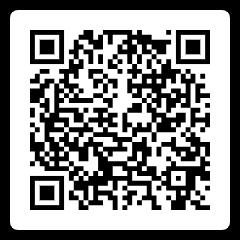
WE ARE PLEASED TO ANNOUNCE BORN FREE USA’S LEADERSHIP GIVING CIRCLE
$1,000+ (Protector Level)

Your generosity makes a difference. With an annual gift of $1,000 or more, you’ll be recognized as part of the Born Free USA Leadership Giving Circle, a community of dedicated supporters helping to protect wildlife and providing lifelong care for rescued monkeys.
As a Leadership Giving Circle member, you’ll receive exclusive opportunities to connect with our experts, receive meaningful recognition, and special engagement opportunities, listed to the right.
Virtual sanctuary tour, impact briefings, and early event access.
$5,000+ (Guardian Level)
Personalized impact video, VIP event seating, and private leadership briefings.
$10,000+ (Champion Level)
Private sanctuary tour, custom impact reports, and an exclusive leadership dinner.
Your gift fuels the rescue and care of hundreds of monkeys, advocacy for wildlife protection and animal welfare, and global conservation programs aimed at keeping wildlife in the wild. Give today and make an impact.
Gita Matlock, Chief Development Officer: gita@bornfreeusa.org or (415) 238-1551.
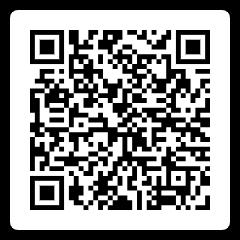
ADOPT A BEAR!
Bears are losing their lives and losing their habitats.
• Human encroachment in forests is increasing bear to human conflicts.
• Changing temperatures are disrupting their food sources.
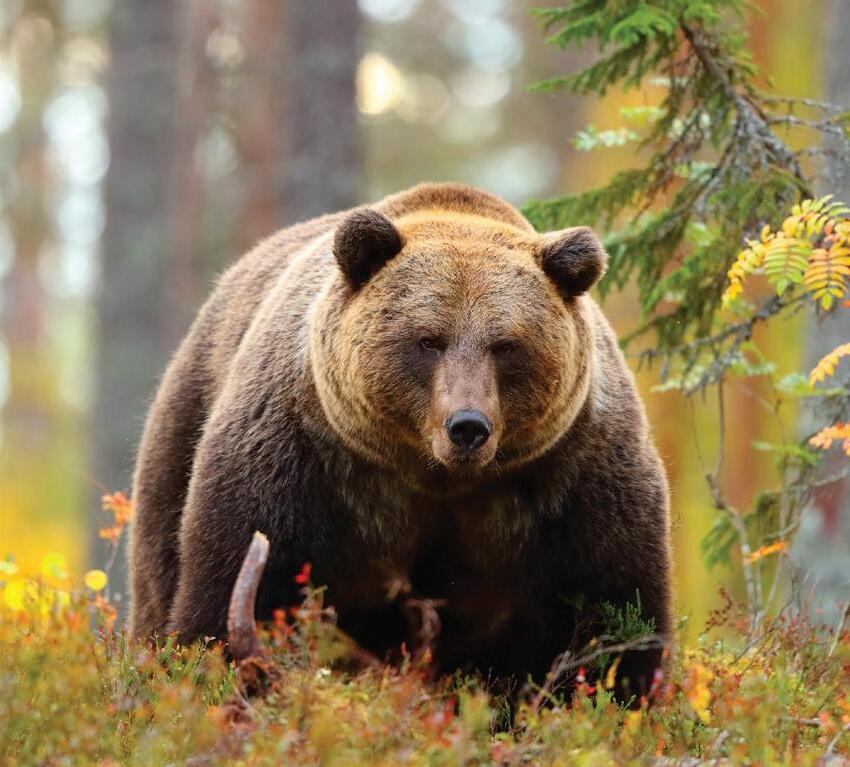
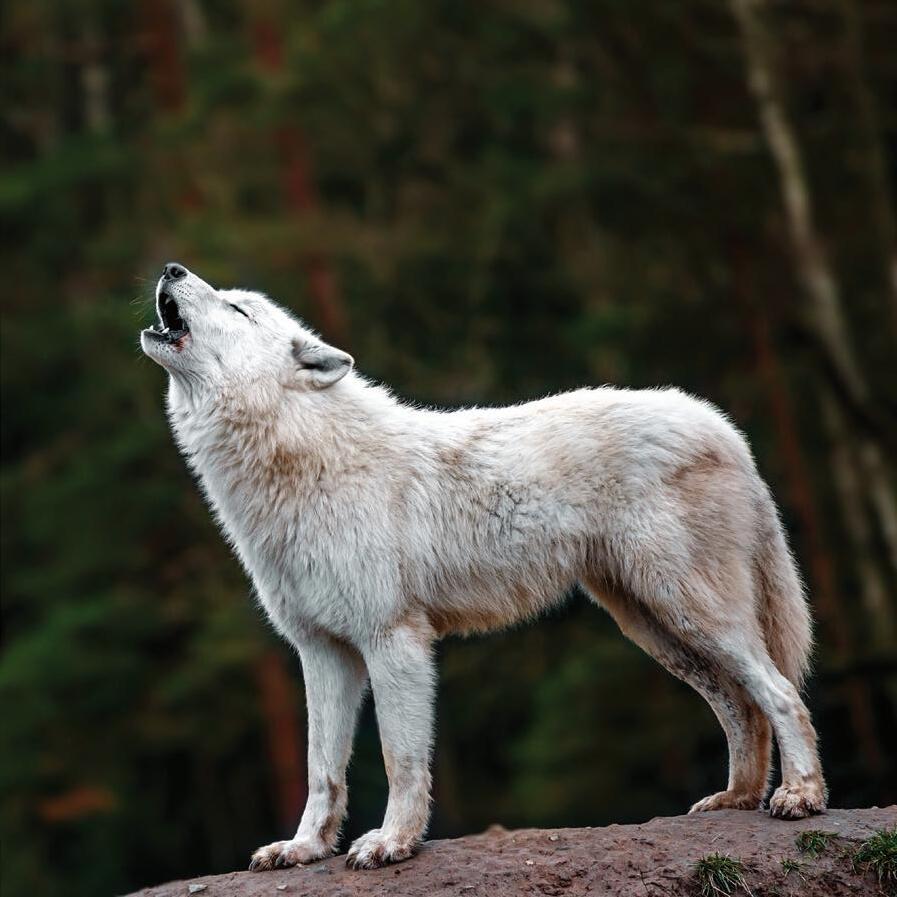
• Trophy hunting is mercilessly killing off families of bears.
• Bear populations are at constant risk of losing legal protections.
These are a few of many threats facing bears today. Together, we can ensure that bears are protected.
You can help right now when you symbolically adopt a bear! Your adoption gift will support Born Free USA’s work to protect bears and their habitats, stop trophy hunting and lethal wildlife management, and promote peaceful coexistence
between humans and bears. For only $60 a year or $7 a month, you can build a better future for bears.
Each adoption comes with an adoption certificate, a bear fact sheet, a photo of a bear in the wild, and a huggable eco-friendly bear plush.
Bears need us now, so don’t wait. Adopt a bear today! Visit bornfreeusa.org/adoptbear.
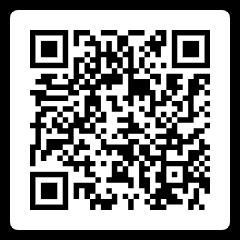
OF
P.O. Box 32160
Washington, DC 20007
301-448-1407
info@bornfreeusa.org
www.bornfreeusa.org
Change Service Requested
PROTECT WILDLIFE FOR GENERATIONS TO COME
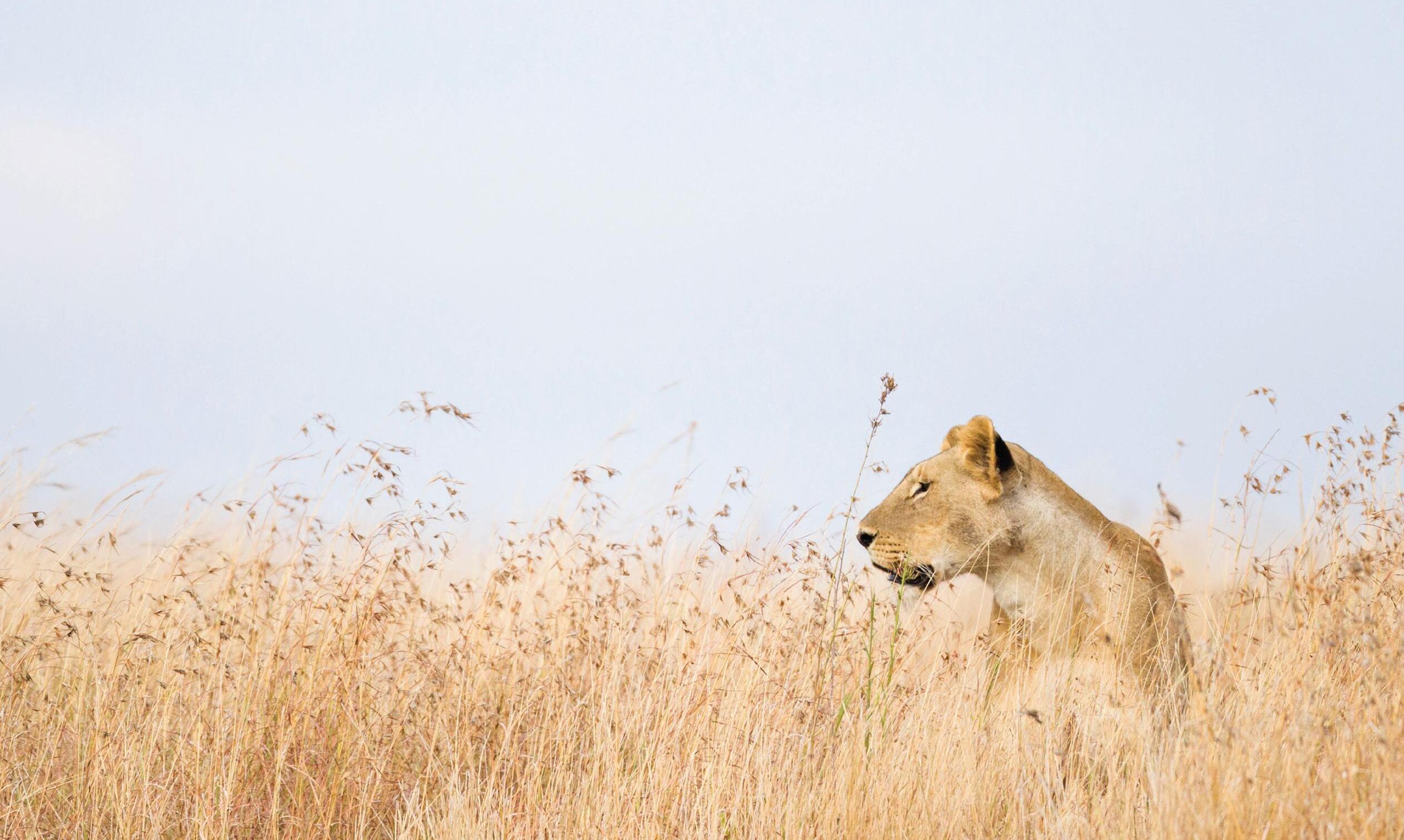
Your legacy can be a lifeline for animals in need.
By including Born Free USA in your will or trust, you become part of Elsa’s Legacy Circle, a dedicated community ensuring that wild animals have a future filled with freedom and care.
Creating your legacy is simple and takes just minutes with our complimentary Will & Trust tool.
Secure your legacy. Protect their future.
